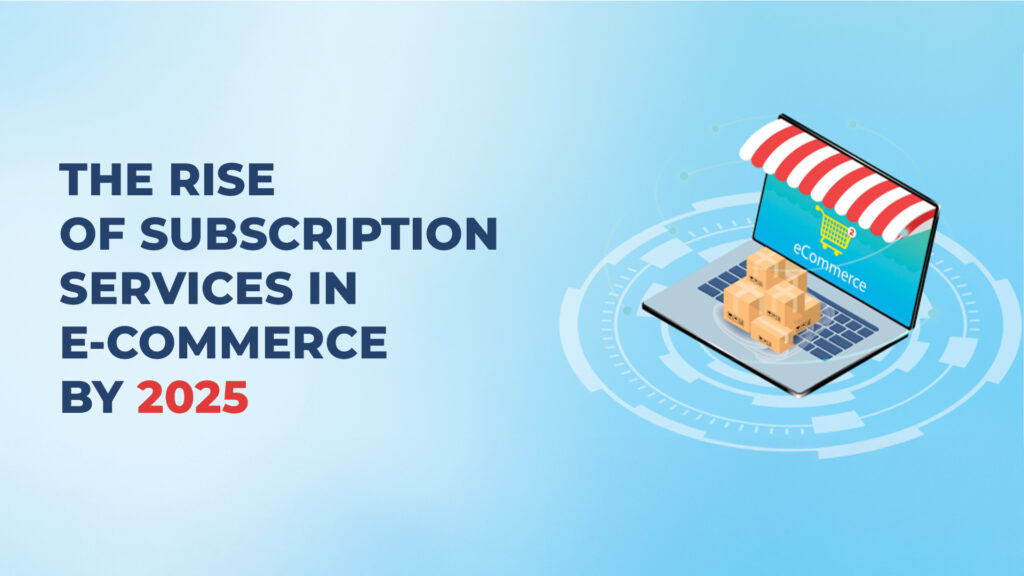
The subscription commerce market is witnessing an unprecedented expansion, marking a revolutionary shift in how businesses interact with their customers. By adopting subscription-based models, companies have unlocked avenues for sustained growth and customer loyalty. Renowned brands like Dollar Shave Club and Blue Apron exemplify the immense potential of this approach, demonstrating how subscription services can disrupt traditional market dynamics and create lasting value.
In 2021, approximately 16% of eCommerce businesses in North America and Europe planned to launch subscription services, according to industry statistics. This surge aligns with the exponential rise in eCommerce, which saw global online shopper numbers reach 2.14 billion in the same year. The subscription model’s appeal lies in its versatility and scalability, spanning industries like e-learning, seasonal products, and on-demand content. By strategically implementing subscription models, businesses can achieve consistent growth, even in fluctuating markets.
This blog delves into the mechanics of subscription commerce, exploring its various models, the reasons behind its popularity, actionable steps for launching a subscription business using Magento, and strategies to transition traditional products into subscription formats. Understanding these aspects can help businesses harness the growing momentum of subscription eCommerce and adapt to evolving consumer preferences.
Understanding Subscription Models in eCommerce
Subscription models have emerged as a beacon of stability and growth, particularly during challenging economic times, such as the COVID-19 pandemic. They provide businesses with recurring revenue streams, enabling better inventory management and operational efficiency.
For customers, subscription-based eCommerce offers unmatched convenience. By ensuring uninterrupted access to products and services, businesses foster stronger relationships with their clientele. This model essentially establishes a mutually beneficial contract between merchants and customers, proving invaluable during periods of restricted mobility or global crises.
In the digital space, many eCommerce businesses drew inspiration from the subscription-based SaaS model, which had already proven the power of recurring revenue.
See What Will E-Commerce Look Like in 2025?
How Does the eCommerce Subscription Model Work?
At its core, the subscription eCommerce model revolves around generating recurring revenue through periodic product or service offerings. Unlike one-time purchases, subscriptions emphasize building long-term customer relationships. This approach enhances customer retention and lifetime value, key metrics for sustainable growth.
The operational framework is straightforward: merchants offer products or services for a fixed duration, with customers opting to renew or cancel subscriptions at the end of each cycle. This inherent flexibility makes the subscription model appealing, fostering customer satisfaction and loyalty.
Leading Brands Using Subscription Models
The global subscription eCommerce market is thriving, driven by changing consumer habits and a growing preference for convenience. Several industry leaders exemplify the successful implementation of subscription models:
Dollar Shave Club
This California-based grooming product company disrupted the market with its subscription approach, challenging industry giants like Gillette. Its focus on affordability and convenience struck a chord with customers.
Amazon
Through its “Subscribe and Save” service, Amazon provides household essentials at discounted rates, coupled with free shipping and hassle-free cancellation options.
Spotify
Revolutionizing the music industry, Spotify offers free ad-supported plans alongside paid premium subscriptions. In 2021, its premium subscriber base grew from 144 million to 172 million, as reported by Statista.
Porsche
Catering to automotive enthusiasts, Porsche offers monthly car subscriptions, allowing customers to switch between models. Other luxury brands like BMW and Cadillac have adopted similar strategies.
Also read 5 Common E-commerce Revenue Models & 6 Strategies to Earn More
The increasing accessibility of the internet and evolving consumer preferences ensure that subscription-based businesses will continue reshaping industries worldwide.
Types of Subscription Commerce Models
Subscription commerce encompasses various models tailored to different products and services. The primary types include:
Service Subscriptions
These cater to essential services. For instance, WordPress.com and MailChimp offer flexible pricing plans for their respective platforms, ensuring scalability and affordability.
Product Subscriptions
Focused on delivering physical products, these models include subscription boxes for meal kits, grooming products, or lifestyle items. Companies like Birchbox and Manscaped excel in this domain.
Digital Content Subscriptions
With the rise of internet penetration, platforms like Netflix, Amazon Prime, and Spotify offer exclusive content to subscribers, fostering brand loyalty and engagement.
Classification of Subscription Models
Subscription models can be further categorized based on their functionality:
Replenishment Models
These automate the purchase of essential items, such as healthcare or household products. Amazon’s “Subscribe and Save” service is a prominent example.
Curation Models
Focused on personalization, these models surprise customers with tailored products, like beauty or gourmet food items. Birchbox is a leading player in this category.
Premium Access Models
These grant subscribers exclusive access to premium content or services. Platforms like Netflix and Amazon Prime are pioneers in this space.
Among these, curation models have gained significant traction due to their emphasis on customization, addressing the growing demand for personalized experiences.
Why the Subscription Model is on the Rise
The subscription model’s popularity stems from its ability to address both consumer and business needs effectively. According to research by PaySafe, 27% of consumers increased their subscription usage, highlighting the model’s growing appeal. Key drivers include:
Customer Retention
Retaining existing customers is cost-effective and fosters loyalty. Subscription models strengthen these relationships by ensuring regular interactions.
Business Consistency
Predictable revenue streams and efficient inventory management enable steady growth and reduced operational risks.
Convenience and Flexibility
Subscriptions offer seamless experiences, simplifying the buying process and enhancing customer satisfaction.
Benefits of Starting a Subscription Business
Subscription eCommerce offers numerous advantages for businesses and customers alike. Key benefits include:
Upselling and Cross-Selling
Subscriptions deepen customer relationships, creating opportunities to introduce complementary products or premium offerings.
Reduced Competition
A loyal subscriber base minimizes the need to constantly compete for market share, fostering a stable business environment.
Financial Forecasting
Predictable revenue enables better planning, resource allocation, and investment decisions.
Enhanced Client Relationships
Regular interactions with satisfied customers increase the likelihood of renewals and referrals.
Inventory Management
Subscription models streamline inventory planning, reducing waste and ensuring consistent supply.
Convenience
Customers save time and effort, enhancing their overall shopping experience.
Starting a Subscription Business with Magento
Magento’s robust platform provides the perfect foundation for launching a subscription business. Its advanced capabilities enable businesses to seamlessly integrate subscription services, offering unparalleled flexibility and functionality. For existing Magento stores, extensions can automate key processes, including payment capture and subscription management. These tools also generate detailed reports, aiding in performance analysis and strategic decision-making.
Steps to Launch a Subscription Business
Embarking on a subscription business journey requires careful planning and execution. Key steps include:
Identify a Specific Niche
Define your target audience and their needs to tailor your offerings effectively.
Differentiate Your Offerings
Highlight unique value propositions to stand out in a competitive market.
Procure Products Efficiently
Establish reliable supply chains to ensure timely delivery and customer satisfaction.
Leverage Technology
Utilize platforms like Magento to streamline operations and enhance customer experiences.
Promote Effectively
Employ targeted marketing strategies to raise awareness and attract subscribers.
Profitable Subscription Business Ideas
The versatility of the subscription model opens doors to various lucrative opportunities. Some promising ideas include:
Online Course Subscriptions
Platforms like Udemy offer courses on diverse topics, catering to lifelong learners.
Travel Subscriptions
Travel passes or membership programs can cater to frequent travelers.
Newsletter Subscriptions
Premium content subscriptions provide value to niche audiences, fostering engagement.
Health and Wellness Subscriptions
Services offering fitness plans, healthy meals, or wellness products continue to gain popularity.
Gaming Subscriptions
With the growing gaming industry, subscriptions for exclusive content, add-ons, or community access are highly appealing.
Conclusion
The subscription eCommerce model has emerged as a transformative strategy for modern businesses. By fostering customer loyalty, generating predictable revenue, and streamlining operations, it offers a sustainable pathway to growth. The examples and insights shared in this blog highlight the vast potential of subscription commerce across industries.
By utilizing the subscription model and leveraging platforms like Magento, businesses can effectively tap into this burgeoning market. Whether transitioning existing products or launching new ventures, the subscription approach promises unparalleled opportunities for innovation and profitability. Begin your journey toward a thriving subscription-based business today, and unlock the future of eCommerce.

Professional content writer Akhila Mathai has over four years of experience. She writes posts about the different mobile app solutions we offer as well as services related to them. Her ability to conduct thorough research and think critically enables her to produce excellent, authentic, and legitimate content. Along with her strong communication abilities, she collaborates well with her teammates to create information that is current and relevant to emerging technology.
